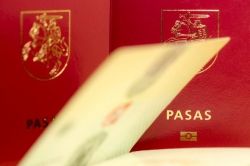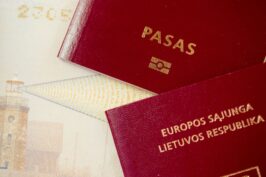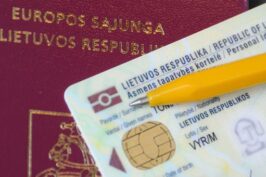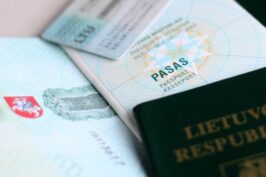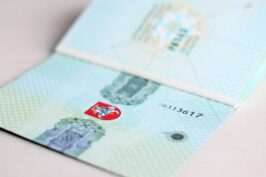- Home
- Lithuanian citizenship through the ethnic descent
Lithuanian citizenship through the ethnic descent
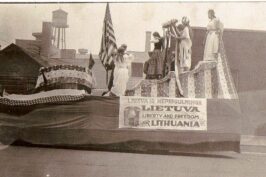
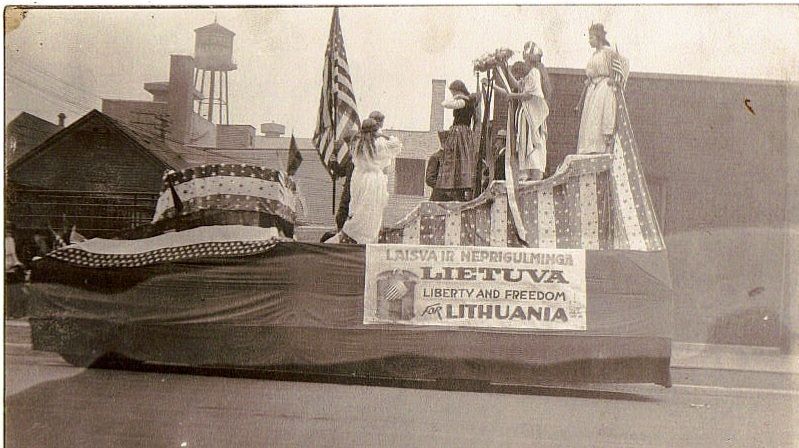
Lithuanian citizenship through the ethnic descent
Lithuanian citizenship may be acquired on certain bases provided in the Law of Republic of Lithuania on citizenship. One of the key paths is Lithuanian descent, which may entitle a person either to acquire citizenship via simplified procedure or to reinstate Lithuanian citizenship if their ancestors were citizens before June 15, 1940.
This article explains the differences between Lithuanian ethnic origin and citizenship, who qualifies, what documents are required, and how the process works under current law.
Lithuanian Origin vs. Lithuanian Citizenship
It’s important to distinguish between Lithuanian origin (ethnicity) and Lithuanian citizenship.
- Lithuanian origin should not be equalized to Lithuanian citizenship. Lithuanian origin is related to the ethnicity, the national affiliation of a person, his (her) belonging to a certain nation, ethnos or another historically developed group of people with common characteristics, such as language, culture, religion and so on, attributed to them.
- A person of Lithuanian origin can be not a citizen of Lithuania and a person of another origin (such as Jewish, Russian, Ukrainian etc.) can be a citizen of Lithuania.
Following the relevant provisions of the Law of Republic of Lithuania on citizenship, a person of Lithuanian origin is a person whose:
- parents or grandparents or at least one of the parents or the grandparents are or were of Lithuanian origin
- who self-identifies as a Lithuanian and declares this by a declaration in writing.
Simplified Procedure for Lithuanian Citizenship by Descent
A person of Lithuanian origin may be endued with Lithuanian citizenship according to the simplified procedure. In such a case, the person should renounce the previous citizenship of the other state. In addition, Certificate of Lithuanian descent and a permit for residence in Lithuania may be issued to such a person.
Reinstatement of Lithuanian Citizenship
Another way for acquisition of Lithuanian citizenship is Reinstatement of Lithuanian citizenship. Lithuanian citizenship may be reinstated for a person, if he (she) was a citizen of Lithuania before 15 June 1940 or his (her) ancestors (parents, grandparents or great-grandparents) were citizens of Lithuania before 15 June 1940. In such a case, the citizenship of the person or his (her) ancestors, not their origin, is taken into consideration. For a reinstatement of Lithuanian citizenship upon retention of the previous citizenship (Dual citizenship), the following supplemental conditions shall be satisfied:
Conditions for Dual Citizenship
- The person was deported from occupied Lithuania before 11 March 1990;
and (or) - The person had left Lithuania before 11 March 1990;
- The person is a descendant (a child, a grandchild or a great-grandchild) of the above-specified persons.
Definition of Deportation and Emigration Before 1990
A person deported from occupied Lithuania before 11 March 1990 is a person who was a citizen of Lithuania before 15 June 1940 or a descendant of such a person who were deported from Lithuania under compulsion in the period between 15 June 1940 and 11 March 1990 according to a decision of authorities or a court of the occupation regime for a resistance to the regime or political, social or origin-related reasons.
A person having left Lithuania before 11 March 1990 is a person who was a citizen of Lithuania before 15 June 1940 or a descendant of such a person having left the territory of today Lithuania for permanent residence in another state before 11 March 1990, if their place of permanent residence was out of Lithuania on 11 March 1990. This conception is not applicable to persons having left the territory of Lithuania after 15 June 1940 for any other location of the former Soviet Union.
Legal Amendments and Dual Citizenship Criteria Since 2016
Before June 2016, the Migration Department under the Ministry of Interior assessed the reasons of leaving Lithuania. For reinstatement of Lithuanian citizenship upon retaining the previous citizenship, such reasons could be historical and political (not social). After the adoption of amendments to the Law of Republic of Lithuania on 23 June 2016 by Seimas, the reasons of leaving Lithuania before 11 March 1990 ceased to be an important criterion in the process of Reinstatement of Lithuanian citizenship. If a person applies for reinstatement of Lithuanian citizenship upon retaining the previous citizenship (Dual citizenship), he (she) shall prove an existence of the following crucial circumstances:
Key Requirements for Citizenship Reinstatement
- Lithuanian citizenship before 15 June 1940;
- The fact of leaving Lithuania before 11 March 1990 and permanent residence out of Lithuania on 11 March 1990 or the fact of deportation;
- The kinship;
- The change of the personal data (the first name or the surname).
Documents Required to Prove Lithuanian Citizenship Before 1940
The documents certifying Lithuanian citizenship before 15 June 1940 include:
- Lithuanian passports (government-issued passports or passports for travelling abroad) issued before 15 June 1940;
- Lithuanian passports for travelling abroad issued by diplomatic missions or consular institutions of Lithuania after 15 June 1940;
- Documents attesting military service of the person in Lithuanian Army or his (her) involvement in civil service;
- Certificates of birth or other documents where Lithuanian citizenship of the person is specified;
- Identification documents issued in Lithuania before 15 June 1940 or identification documents issued on the base of the documents issued in Lithuania before 15 June 1940.
If the above-listed documents are absent, documents on learning, working or residing in Lithuania documents issued in Lithuania before 15 June 1940 as well as a passport of a foreign state and other documents may be submitted.
Application Requirements and Translation Guidelines
An Application for a reinstatement a Lithuanian citizenship shall be written in Lithuanian. The documents enclosed to the Application shall be translated into Lithuanian and certified according to the procedure provided in legal norms (by Apostile or according to the legalization procedure).
Where to Submit Lithuanian Citizenship Applications
The documents shall be submitted to:
- the Migration department in Lithuania – Migration department
- a diplomatic mission or a consular institution in a foreign state – Lithuanian diplomatic missions and Consular institutions
Lithuanian Citizenship Through the Ethnic Descent Benefits
Acquiring Lithuanian citizenship through the ethnic descent offers a unique opportunity for individuals of Lithuanian heritage to reconnect with their ancestral roots. This pathway allows descendants of Lithuanians — regardless of where they currently live — to obtain Lithuanian citizenship based on their lineage. One of the key benefits is the right to live, work, and study anywhere in the European Union, as Lithuania is an EU member state. In addition to EU rights, successful applicants gain access to social services, simplified property acquisition in Lithuania, and a stronger cultural and personal connection to their Lithuanian identity. Unlike other routes to naturalization, the ethnic descent process may be faster and more flexible, especially for those who can prove their Lithuanian origin through documentation. This is a powerful legal and emotional benefit for families looking to preserve their heritage for future generations.
Free Legal Assessment for Lithuanian Citizenship Eligibility
Free Legal Assessment: Lithuanian Citizenship Eligibility
The lawyers of MIGRATION LAW CENTER offer a free legal Assessment (analysis) of your options for obtaining Lithuanian citizenship. To receive a detailed analysis, please complete an application form by clicking this link – FORM.
Following a thorough legal analysis of your options that would allow to obtain Lithuanian citizenship, our lawyers will provide you with a written response (analytical results) regarding your options of obtaining Lithuanian citizenship and further requirements as well as procedure processes.
If you have any questions regarding Lithuanian citizenship or should you require more information or help, please contact us by e-mail: info@migration.lt or phone: + 370 6 1861886. We will gladly help you.
